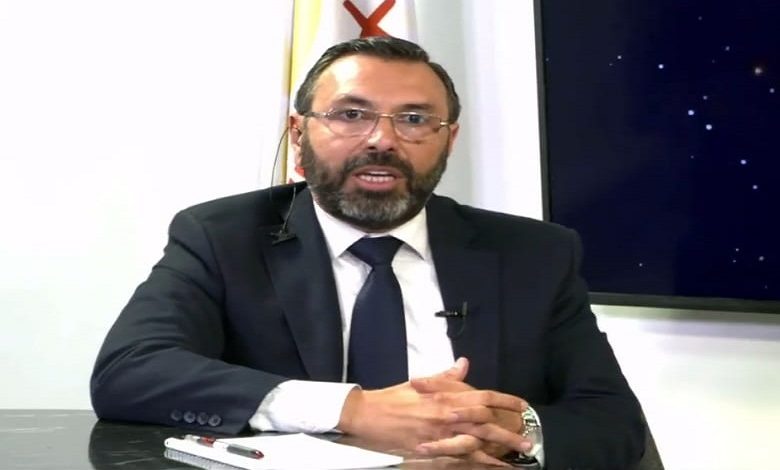
By: Dr. Haytham Ereifej
Jordan Daily – Since his emergence on the political scene, U.S. President Donald Trump has sparked successive waves of controversy due to his fiery statements and unconventional ideas.
This time, the debate is not limited to domestic issues or traditional political decisions but extends to unrealistic ambitions and almost fantastical ideas, such as annexing Canada and Greenland, controlling the Panama Canal, renaming the Gulf of Mexico, and expelling the population of Gaza to seize control. These statements are not merely passing remarks or displays of power but reveal a calculated political strategy based on shock tactics and political blackmail, aimed at imposing his agenda and forcing other parties to make concessions on more critical issues.
From his early days in politics, Trump has relied on unconventional strategies to pressure his opponents and achieve his goals. One of the most prominent of these strategies is presenting ideas that appear shocking and impossible, creating a state of panic and hesitation among world leaders, making it easier for him to push through his real demands, which are less extreme but no less dangerous.
Trump understands that stirring controversy and creating chaos serve his interests, as exaggerating impossible ideas makes other leaders view his “less insane” demands as acceptable.
For example, when he previously expressed his desire to purchase the island of Greenland, he faced international ridicule, but at the same time, he succeeded in drawing attention and diverting focus away from more critical domestic and international issues. The same approach is now being repeated but in a more extreme manner, as Trump proposes unrealistic ideas as a means of pressuring the international stage, exploiting the geopolitical chaos in the world.
Trump’s policies cannot be understood in isolation from his international alliances, particularly with Israeli Prime Minister Benjamin Netanyahu. Both embrace extreme right-wing ideologies based on expansion and the imposition of dominance by force, with no regard for international law or the rights of peoples.
This alliance is not new, but it is renewed whenever one of them needs the other’s support to advance their political schemes.
Netanyahu, who faces domestic challenges and corruption allegations, finds in Trump’s extreme policies a golden opportunity to strengthen his position within Israel and justify his aggressive policies toward Palestinians and neighboring countries. In return, Trump uses Israeli support to gain the backing of the far-right in the United States and ensure the loyalty of pro-Israel lobbies within the country.
History teaches us that such expansionist ambitions do not last and that political arrogance often ends in a dramatic downfall. Therefore, the international community must stand firm against these extreme ideas and reject any attempts to impose a new reality by force. Accepting these proposals or even dealing with them flexibly will lead to catastrophic consequences in the long run, as it could encourage other leaders to adopt the same aggressive approach.
In this context, Arab and Islamic countries, and indeed the entire world, must adopt a unified and strict stance against these policies, sending a clear message that political arrogance is no longer acceptable and that attempts to reshape the geopolitical map by force will not go without consequences.
Jordan, given its sensitive geographical location and pivotal regional role, finds itself at the heart of these growing challenges. However, despite the pressures, Jordan’s position remains steadfast in rejecting any attempts to undermine national sovereignty or impose agendas that serve external parties at the expense of national interests.
Throughout history, Jordan has proven its ability to withstand international pressures and its refusal to compromise on its rights and principles. Today, more than ever, we must remain united in facing these challenges and reject any pressures that may affect the independence of Jordanian decision-making or its national security.
Amid these escalating threats, it becomes necessary to form a strong Arab alliance to counter external pressures. Here, the role of His Majesty King Abdullah II emerges as the Arab leader most capable of rallying support and coordinating positions among major Arab countries, such as Egypt, Saudi Arabia, the UAE and Qatar.
This alliance could serve as a bulwark against any attempts to redraw the region’s map according to agendas that serve only the interests of major powers. It could also use political and economic leverage to curb the influence of forces attempting to impose a new reality by force.
In the end, we cannot allow these extreme policies to affect Jordan’s interests and stability. We must remain united, vigilant, and prepared to face any threats, because the homeland is not just geographical borders but an entity that must be defended by all possible means.
Today, more than ever, we must act in the interest of Jordan first and foremost, as this is the foundation that cannot be compromised. The coming phase holds many challenges, but through unity and solidarity, we can protect our homeland and preserve its security and stability.

